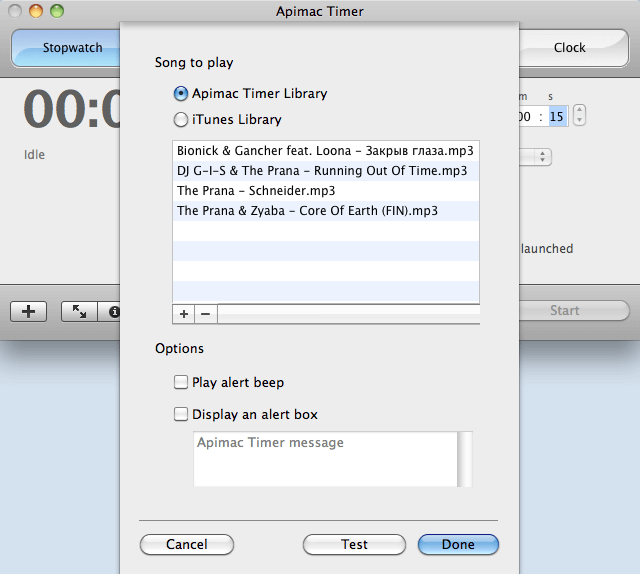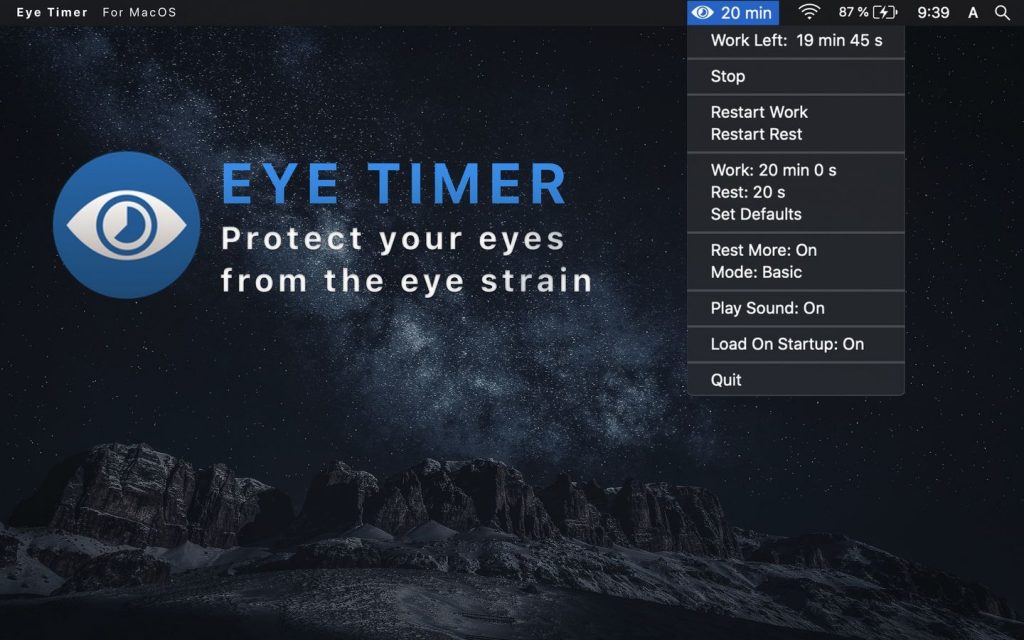
- #Apimac timer 8.0 for mac os x
- #Apimac timer 8.0 mac os x
- #Apimac timer 8.0 mac os
- #Apimac timer 8.0 update
With the purchase of NeXT in late 1996, Apple developed a new operating system strategy based largely on the existing OpenStep platform.

By the mid-1990s, most Mac software was written in C++ using CodeWarrior. Over time, a number of object libraries evolved on the Mac, notably the Object Pascal library MacApp and the Think Class Library (TCL) in Pascal, and later versions of MacApp and CodeWarrior's PowerPlant in C++. Much of the Macintosh Toolbox consisted of procedure calls, passing information back and forth between the API and program using a variety of data structures based on Pascal's variant record concept.
#Apimac timer 8.0 mac os
The original Mac OS used Pascal as its primary development platform, and the APIs were heavily based on Pascal's call semantics.
#Apimac timer 8.0 mac os x
"Carbonized" application Adobe Systems ImageReady v.7.0 running directly on Mac OS X version 10.2 Classic Mac OS programming Apple did not create a 64-bit version of Carbon while updating their other frameworks in the 2007 time-frame, and eventually deprecated the entire API in OS X 10.8 Mountain Lion, which was released on July 24, 2012. As the market has increasingly moved to the Cocoa-based frameworks, especially after the release of iOS, the need for a porting library was diluted. With the release of macOS 10.15 Catalina, the Carbon API was officially discontinued and removed, leaving Cocoa as the sole primary API for developing macOS applications.Ĭarbon was an important part of Apple's strategy for bringing Mac OS X to market, offering a path for quick porting of existing software applications, as well as a means of shipping applications that would run on either Mac OS X or the classic Mac OS. Developers could use the Carbon APIs to port (“carbonize”) their “classic” Mac applications and software to the Mac OS X platform with little effort, compared to porting the app to the entirely different Cocoa system, which originated in OPENSTEP. Carbon provided a good degree of backward compatibility for programs that ran on Mac OS 8 and 9. at the Wayback Machine (archived April 20, 2009)Ĭarbon was one of two primary C-based application programming interfaces (APIs) developed by Apple for the macOS (formerly Mac OS X and OS X) operating system.
#Apimac timer 8.0 update
Version 7.0 is a free update for registered users.It has been suggested that Multiprocessing Services be merged into this article. Company and site licenses (up to four computers) are available. It's also available in a pro edition for US$14.95. Timer is Universal Binary so runs natively on both PowerPC and Intel Macs. The countdown can be optionally repeated, and the alarm clock can be set for a specific day or repeated daily.Īpimac Timer is freeware, this means that users can freely use it as long as they wish, anyway some users could be interested in buy the Pro version which adds some additional features as emailing the log at a specific interval of time computer log out, restart and shut down launching a specific application executing shell scripts launching a web address and so on.

The stopwatch lets you specify events occurring after a specific amount of time or events that repeats every specific amount of time. Events include the ability to play alarms with your favorite sound, play song files, speak a specific message, or announce the time. The new version offers the: ability to save the state of a timer the ability to navigate between running timers in full-screen mode using the contextual menu or keyboard's arrow keys (Pro feature) user interface changes an various code optimizations and improvements to product stability.Īpimac Timer features include a log (also automatically updated when some event occurs) and tickers that remember user that some timer is running every specific amount of time. The upgrade offers, among other things, support for multiple timers.
#Apimac timer 8.0 for mac os x
Educational Institution and Student DiscountsĪpimac has announced Timer 7.0 ( ), an update of the freeware stopwatch, alarm clock, countdown and clock utility for Mac OS X (10.4 and higher).


 0 kommentar(er)
0 kommentar(er)
